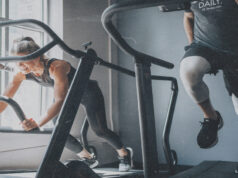For babies and toddlers, physical development is a continuing source of joy. They acquire new abilities, become less dependent on others to take care of their basic needs, and experience the thrill of exploring the world.
They cannot do it all on their own, however. Having a parent or guardian who provides the right kinds of stimulation and support can help a child to advance more quickly, potentially providing lifelong advantages.
It can help with the identification of any developmental problems, which are always easier to deal with if caught early. It can also provide an important means of bonding, and be a lot of fun for adult and child alike.
What to expect of a developing child?
Small children develop so rapidly that it can feel overwhelming, but it’s important to know what to expect at different stages. By the age of two months, babies should be starting to take some of their own body weight through their legs, if held upright. By three months, they should be able to roll over.
By four months they should be able to reach for toys and grasp them firmly, and they are likely to start crawling at around six or seven months of age. At around nine months, they should be starting to pull themselves upright and try to stand, and at around one year old, they will take their first steps.
After this, they will gradually acquire new skills, such as kicking a ball, spinning a hula-hoop or climbing steps, if they are given the right support.
The importance of exercise
In order to make this progress, it’s necessary to put on a lot of muscle. Babies acquire some of this by themselves when trying to move around and reach the things they want, but they’ll do it much more effectively if they receive the right stimulation and have opportunities for play – behavior that is thought to have evolved to help young animals develop physically and learn new skills. Exercise and play naturally overlap for infants, so anything done to encourage them must stop when they stop finding it fun.
They don’t have the endurance or attention span of adults, or even of older children, and that’s fine, because everything about them is geared to help them develop as they need to develop – they just have many different things to do. Their minds, as well as their bodies, are busy, and sleep is important for helping them process what they’ve learned.
Playing together and alone
Playing with somebody else helps a baby to develop physically and socially at the same time. Play should begin in the first weeks after birth, with gentle stimulation, such as rubbing the tummy or tickling the soles of the feet.
As the baby develops, play can progress to activities such as rolling a ball between people or holding objects just out of reach – never for long enough to prompt tears – so that the baby has to try and move along the floor to reach them. Playing music or singing songs together can make play like this still more fun.
Alongside this kind of activity, babies need to learn to play by themselves. Spending time alone is important to mental development. It doesn’t need to mean playing without stimulus. Providing a multi-function activity center, such as a baby gym, is a great way to ensure that babies stay focused on self-directed play, because it’s never too early to consider fitness.
A safe play space
When helping infants to build up their fitness, it’s vital to consider safety. This begins with making sure that toys are clean and that babies have soft places to play when they’re tiny, whether that’s a mattress, a rug or a baby play mat.
As they get bigger, they’ll be less susceptible to injury from falls but new hazards will emerge. Shelves and coffee tables will have to be cleared of small items that they could pull down and put in their mouths.
Crockery, glassware and silverware will have to be kept out of reach, as will power cords, and electrical outlets and fireplaces will have to be covered. Stairs will need to be gated and used only under close supervision. Often the best solution is to get a playpen for the infant to play in, so that adults can occasionally turn their backs to get on with things such as housework.
Babies who learn to find active play fun are far more likely to enjoy physical activities in later childhood, and to exercise in adult life. Helping them to play like this when they’re small can make them stronger, healthier and able to get more out of life for decades to follow.











